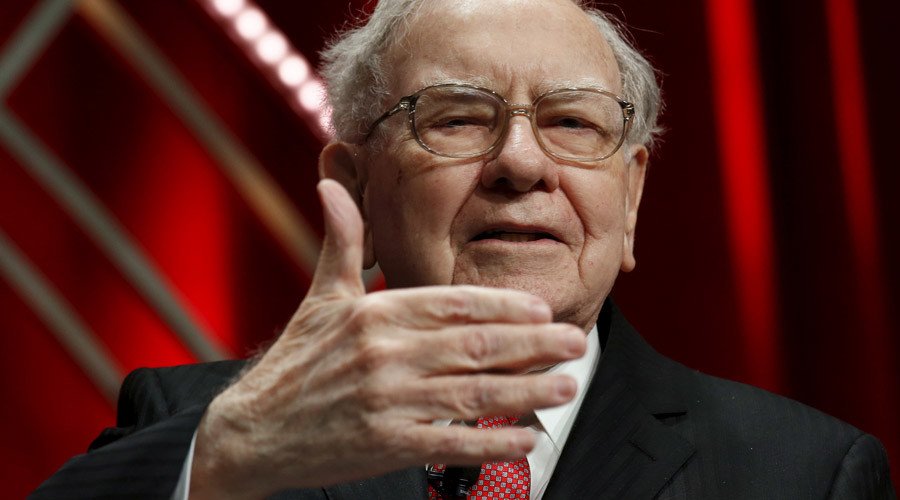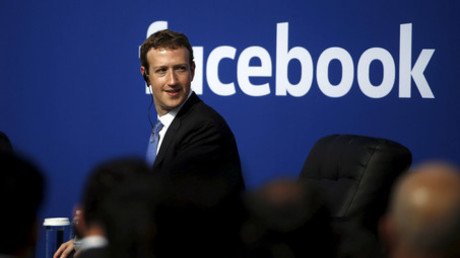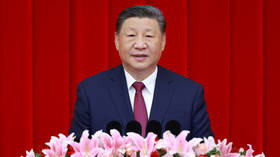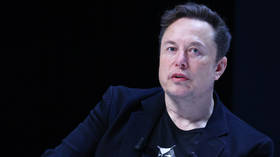Paved with good intentions: When showbiz & charity become political instruments

Public opinion is increasingly influenced by mixing politics, business and entertainment with good causes. When Mark Zuckerberg announced he was giving away most of his money, people got excited. But charity and good causes are rarely what they seem.
Politics – as the adage goes – is show business for ugly people.
If by ‘show business’ we mean the implementation of a script worked out in advance by people the public never hears about and dressed up to resemble a spontaneous and passable substitute for reality, then I would agree.
What I see, though, is just as all other norms are being redefined and merged with their polar opposites to form a new mush designed to confuse and debilitate, so the beautiful people are being blended with the ugly ones to form a new compound agent.
The first feet over the line appeared in the 1960s. They belonged to JFK who was the first TV president star, and Muhammad Ali, the first major sports star activist.
Since then, the trickle has turned into a deluge, with a lot of the traffic coming from Hollywood and big business.
Just to be clear: I’m not bemoaning the injection of a lack of purity into the political discourse. I have no time for any politician in power of any stripe who does not actively and openly work to wrest power away from international bankers. Outside of Iceland, I’m still waiting.
But today, it is commonplace – almost expected – for a star or an industrial magnate to get behind a cause.
Charities, philanthropies and foundations
Charities and philanthropies have two attractive qualities if you’re in the business of pushing through an agenda quietly. Firstly, they are tax-exempt. Secondly, they are beyond criticism.
People’s naiveté is staggering. They believe that industrial magnates and investors – men who have spent their lives screwing people over – suddenly and for no reason fall under the influence of benevolent fairy dust.
They want to believe that the Warren Buffetts and George Soroses – men whose careers are characterized by reflex ruthlessness – are suddenly compelled to go out and do random acts of kindness.
What, in fact, is happening is that these men are creating foundations: corporations that will never pay any tax and which will continue to advance an agenda none of us voted for – in perpetuity.
A foundation will hire and retire generations of directors and workers, all of whom will be suborned to the Articles governing that foundation at the time it was created. The DNA of the founder is enshrined in a legal entity, given boundless amounts of money, and then allowed to follow an agenda invariably directed towards ‘change’ – change no one ever heard about, never mind voted for.
What foundations (and charities or so-called philanthropies) do not do is give away money. What they, in fact, do is allow money to be released to persons or organizations, which must then do very specific things with it. In short, they subcontract out the implementation of their guiding Articles to the recipients of their ‘charity’.
If it is still hard for you to embrace the notion that what is termed ‘charity’ or ‘philanthropy’ could be anything but benign, I recommend watching Norman Dodd interviewed by the excellent G. Edward Griffin. Norman Dodd was, in 1954, the Staff Director of the Congressional Special Committee to Investigate Tax-Exempt Foundations. He knew how they really work.
Agenda 21
Mainstream media works hard, generally speaking, to defuse criticism of Agenda 21. Similar to philanthropy, it uses warm, fuzzy terminology. It talks, for example, about ‘sustainable development’ – and who could be against that?
Glenn Beck nailed it when he said: “Sustainable development is just a really nice way of saying centralized control over all of human life on planet earth.”
Bill Gates has gone from knowing how to make computer software (which defies any intelligent attempt to use it and now spies on you), to being an expert on the environment (i.e. how all of us should live), which is at the core of Agenda 21.

He couldn’t make an operating system that didn’t crash and turn blue every time you wanted to do something, but he’s got the solution to the problem which was identified by his buddy Al Gore, who went from almost inventing the internet and almost being president of the United States to almost winning the Nobel Peace Prize (he shared it with the Intergovernmental Panel on Climate Change) and who – like Bill – is an expert on how we all should live.
Bill explains with nerd-like zeal the need to reduce carbon emissions to “almost zero” (which, since humans are carbon-based life forms, would require our virtual extinction), and among his toolkit for achieving this aim is “a really great job on new vaccines.”
Bill Gates also has a tax-free foundation. Knowing how – and, in fact, if – the rest of us should have children is something of a family business for Gates. His father, W. H. Gates, was a director of Planned Parenthood, and also a ‘philanthropist’.
Eye candy
Actors and pop stars get adoration and money – at least the successful ones do. And if you live in a grim area and work in a boring job that can seem like the zenith of all possible joy.
However, the appeal wears off after a while. You don’t just want to speak other people’s words. You want to say something significant yourself. You’ve spent your life scrambling up a greasy pole to get respect, only to find yourself secretly afraid that people don’t take you seriously.
Such people, then, are nothing if not vain. That’s partly why they went into the business in the first place.
So it’s not difficult to utilize both their vanity and their proven skills in delivering dialogue they didn’t write and don’t understand, in order to push forward agendas they could never grasp.
Such people are Bill Gates and Warren Buffett writ small. Very small. Because while they might seem like gods to you, they have no real power. They are only ever one misjudged comment away from never working again, and they are all terrified of having to go back and live with the unwashed masses.
People such as Gates and Buffett and Gore are pretty dull to most people. Joe Public is not accustomed to listening to suits. But he has thousands of hours invested in giving his rapt attention to Hollywood stars and musicians.
This makes them useful to those who really do understand power; who can make where the rubber meets the road – where vanity meets inanity – serve to push forward the agenda the grown-ups came up with.
Pop people are basically used by the system to sell a new weaponized culture to the target audience. It is an obvious move to use those tried-and-tested puppets to sell more of that same agenda.
So Angelina Jolie was gushed over by the Telegraph, in part for her intrepid journey to Darfur and then for lecturing the Council on Foreign Relations (a place where real power resides) on the need to do the things in Darfur - stuff the CFR was planning on doing anyway, but was unable to express in a way that did not send people to sleep.
Bono, for his part, has gone from anthems against the establishment to eulogies in its praise. He is big friends with Bill Gates, for example, and likes to chew the cud with him on the ‘charity’ they are both involved in.
You name the star, they’ll have a cause. From Emma Watson (who at the age of 25 is already an ‘activist’) to George Clooney to Scarlett Johansson – they are all out there treading the boards of seemingly worthy narratives, looking authentic and concerned, and investing dullness with magic.

The fact that few if any of them could write an undergraduate paper unaided on the subject they are supposedly experts in doesn’t matter. People follow the stars. And the people who control the stars know that.
Very occasionally, someone goes off-script; someone claws his way to a position of prominence by sheer grit and talent and then just says what he thinks. Tyson Fury comes to mind.
Then the media is less interested in causes and more interested in damage limitation, wringing its hands at the incongruity of someone capable of Wrongthink being fantastically good at something.
Something tells me Mr Fury isn’t going to be invited to share his thoughts with the Council on Foreign Relations or to hug trees with Bill Gates.
I also wonder how long we’ll have to wait to find a star using the Oscars to speak out in favor of no sex before marriage or tipping buckets of cold water over themselves to highlight the evils of usury.
I’m thinking Hell will freeze over first.
The statements, views and opinions expressed in this column are solely those of the author and do not necessarily represent those of RT.















